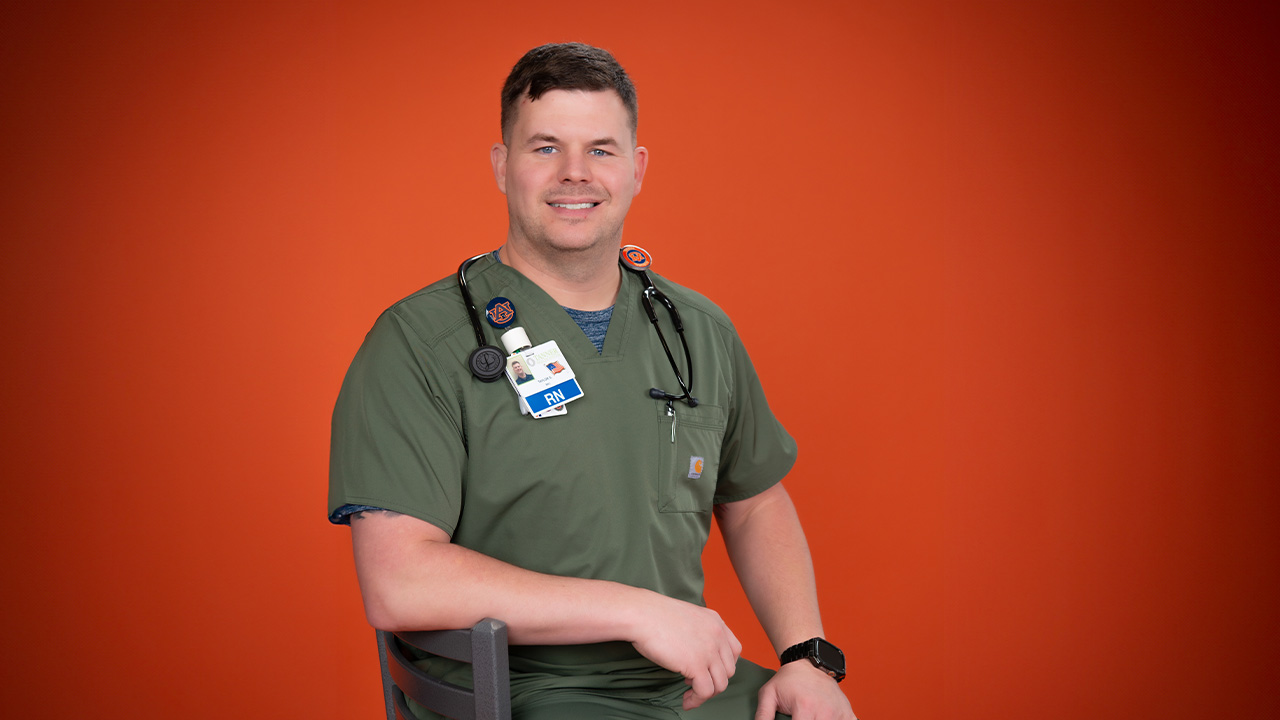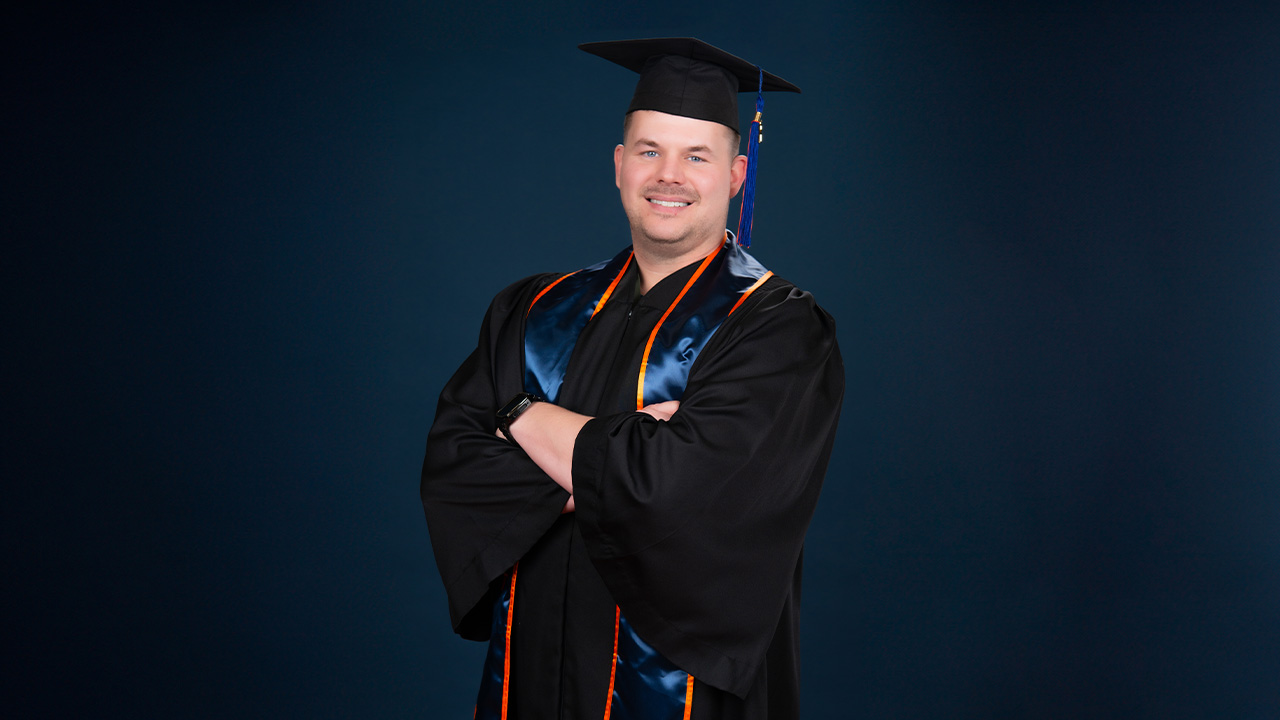content body
If there’s one thing Taylor Shewbirt is good at, it’s handling emergencies.
“Nothing stresses me out really, and that’s been very helpful in all of the roles I’ve had — from a military fireman to city and county fireman to the emergency department,” Shewbirt said. “You just have to take everything in and understand that while it is an emergency, it’s not my emergency and I’m the one that needs to handle things.”
Shewbirt, a native of Carrollton, Georgia, is a military veteran and current emergency department registered nurse (RN). He is graduating from Auburn University’s College of Nursing with a Bachelor of Science in Nursing this December.
He began his career as a fire protection specialist in the U.S. Air Force, stationed at Luke Air Force Base in Glendale, Arizona, where he was constantly training for air-related disasters while also responding to regular emergency calls. When he got out of the military, he took a position with Cobb County Fire and Emergency Services in Georgia, where he served on a technical rescue team, performed swift water rescues and became a licensed paramedic. During COVID-19, he worked alongside nurses while completing his paramedic ICU clinicals and liked the experience so much that he became a licensed RN through Southern Union State Community College before entering Auburn’s RN-BSN program.
A married father of two young children with another on the way, Shewbirt is not stopping at a bachelor’s degree. He plans to continue his education to become a nurse practitioner and, since his work has taught him how vital primary care is in rural areas, he hopes to someday practice in tiny Wedowee, Alabama, the town where he currently resides.
“Some of our patients’ routine problems are going untreated, so they’re ending up with a systemic infection that’s very hard to treat,” he said. “If they could have had access to care at a rural clinic with a nurse practitioner, some of those things could have been alleviated and treated. I think it would be really nice if I could work as a primary care provider in my hometown.”






